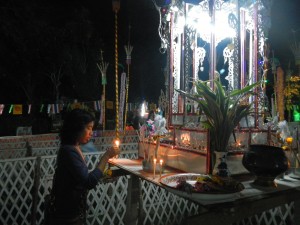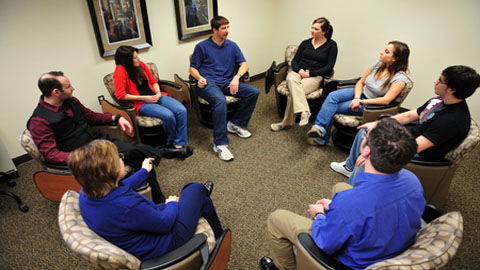When I introduce myself to my students, teachers, administrators and important guests here at the school where I'm teaching in Thailand, the conversation, without fail, proceeds in the following manner:
“Chan chuu Ryann. Pen khon American,” I say. Translation: My name is Ryann. I’m American.I am usually faced by blank stares of confusion.
“Meh ka Paw maa jaak prathet Philippine, ” I add, just to clarify why I have black hair and dark skin. Translation: My mother and father come from the Philippines.
“You look like Thai people,” they offer.
I have mixed feelings when I hear this response. I am flattered to know that I have been able to blend into the northwest Thai/hill tribe culture I’ve been thrust into. However, I am certainly not “Thai people.” I’m Pilipino American. Thus, I am also internally disappointed that my heritage and nationality aren’t as obvious to those around me.
As Fil-Ams, we are at an interesting identity crossroads. We are too American to be Pilipino. We are too Pilipino to be American. We moved from the Philippines. We grew up in the States. Or, we were born in the States, and have yet to dig our feet into Philippine soil.
What does it even mean to be “Pilipino”? How can we understand our Fil-Am identity, especially while abroad? Sometimes, I despise this question. I hate the cliché answers that I come up with. Yes, I do love pan de sal, Kodakan, and a victorious round of mahjong. But there are other facts surrounding my identity that percolate in my mind. I am guilty that I never learned to speak Tagalog. I am ashamed that I’ve only been to the Philippines on two occasions, both of which were not long enough to feel like I belonged there. Am I truly Pilipino?
On some occasions, I’ve even found myself too afraid to introduce myself as an American. Overseas, Americans are perceived as ignorant, lazy and obnoxious individuals. And being in Northwest Thailand over the past six months, I’ve been criticized simply based on the fact that I’m American. I’ve heard the excuse that I don’t understand Thai culture enough to appreciate and value it, as I come from the States. I’m offended by this assumption, because I come from a Pilipino household and culture that certainly values family and religious faith, just like here in Thailand. I’ve been told that my reactions and comments are attributed to me being from the Land of the Free; the fact that I’m a college graduate with an array of experience under my belt is not even considered. All of these insensitive assumptions are unfair, but to take another persons’ criticism to heart would only prove that I’m accepting their claims.
Whether or not this is an identity crisis, I know one thing to be certain: I am a resilient and driven Fil-Am in the global society. Fil-Ams are unique, and crucial, to the larger Pilipino community. We should embrace the various facets that make up who we are, not fear them.


